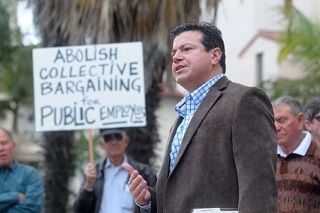Hard To Get Too Ruffled about Renewable Energy Nay-Sayers

I could tell from the tone of my friend’s voice that he thought I would be enraged. Nope. Sorry, but if every unflattering mention of renewable energy angered me, I wouldn’t last too long.
1) I understand there are jobs that will be lost from the fossil fuel industries generally, hopefully starting with coal, as we make the transition to clean energy. Yet, I’ve read a fair amount on the subject, and I’m particularly impressed with the work of Robert Pollin, PhD, (pictured right) Professor of Economics and Co-Director of the Political Economy Research Institute, University of Massachusetts-Amherst, and consultant to the Energy Department on implementing the Obama Administration’s stimulus program, who generously contributed some of his valuable time to the development of my second book (Is Renewable Really Doable?). Based on all this material, I’m convinced that the entire migration is going to represent a considerable boon to the economy.
2) Is renewable energy “outrageously expensive?” Here it gets complicated—and quickly. First, how are we doing the accounting? Are we considering that burning hydrocarbons is, by all scientific accounts, rapidly ruining our planet in terms of lung damage, climate change, ocean acidification, loss of biodiversity, abetting terrorism, etc.? Needless to say, there are enormous costs associated with every single one of those items. Are we counting in the cost of the U.S. addiction to oil vis-à-vis the operations of its military around the world? Economists refer to these as “externalities,” meaning that they are costs associated with a transaction that are not captured in the transaction itself, but passed along to other parties, like you, me, and our descendants.
Actually, that’s the easy part, because the answer to the questions above is almost always No, rendering any meaningful comparison impossible.
The hard part sets in when you ignore all the externalities and simply talk about the cost of renewable energy on a per-KWh basis. In some parts of the country where electricity from wind energy is abundant and demand is low, it’s about $0.02/KWh, about half the cost of the second least expensive resource (coal). Of course, situations like these are rare (though they’re becoming less so all the time). I’m sure this fellow can point to the opposite extreme—some asinine case where tax-payers were driven into some horrible deal in which they were forced to pay through the nose for renewable energy that was so expensive it never should have happened in the first place. In any case, to say that renewables are expensive or inexpensive is really just to say that either a) you don’t know what you’re talking about, or b) you really don’t care too much about getting at a fair representation of the truth.
3) Is this guy a shill for the oil companies? I don’t know. Certainly, a lot of people who try to oversimplify the subject and paint it as bad for the economy are exactly that.
Anyway—sorry to disappoint, but there is absolutely nothing about any of this that I find even mildly irritating. Same stuff, different day.


Absent externalities, the least cost will always be the demolition of your own house to feed the fireplace. There will always be excellent opportunities for profit in areas yet to be proscribed. These absurdities are clear. However, the bulk of humanity seems unable to grasp the concept on a planetary scale.
this says it all:
“Today, Armendariz Partners is one of the fastest growing public affairs companies on the Central Coast and manages the government relations, public affairs and tactical administration for several local nonprofits including SBCTA; SBTIA; the Greater Santa Barbara Lodging & Restaurant Association, and Fair Managed Care. Armendariz Partners also provides tactical public and government relations support to energy companies including ExxonMobil and PXP.”
http://www.sbcta.org/joe%20armendariz.html
Craig, you knew right away.
Thanks, Pierre.
We need a safe, clean, cheap way to provide the world’s energy needs that won’t contribute to climate change. It is called a MSR (Molten Salt Reactor). As a bonus, MSRs will run hot enough to make vehicle fuels from CO2 and water and hot enough to desalinate water too.
MSRs are a totally different than light-water nuclear reactors.
They can’t blow up because they don’t use superheated water, don’t produce loose hydrogen when things go wrong, and they run at atmospheric pressure. They can’t melt down because they use a liquid salt solution instead of solid fuel rods. This concept was proven at Oak Ridge National Labs in the1960s with the MSRE (Molten Salt Reactor Experiment). They can run on any nuclear fuel except U238, but they can be specially designed to run on it. Most important, they can run on thorium. The world has about 400 times as much thorium in the earth’s crust as the uranium-235 that is used now in nuclear reactors. MSRs can be designed to run on nuclear waste too, so this stuff is really fuel, not waste. Clean, safe, electric power, cheaper than coal, IS A BIG DEAL and exactly what the world needs.
See these web sites:
http://TINYURL.com/EnergyReality
http://www.ThoriumEnergyAlliance.com
http://www.youtube.com/watch?v=SS2JrWa_Wkc
Rudy Stefenel
I think all the research money should go into the development of HB11 fusion, and all carbon tax money, too. It just needs more powerful lasers and more powerful magnetic confinement. It is NOT a thermal source (where some working fluid passes a turbine and which will become obsolete when all the daytime is powered by solar panels).
Eventually, breakeven will happen, then less energy in than out, then a race to see how efficient it can be done – kinda like leds.
The mature product: fusion on a chip.
It is seldom that a lack of knowledge has ever stayed someone from forming an opinion.
For sure.
If you want a good example of this, ask a few Americans what they think about the Iran/nuclear deal, and then ask them to tell you everything they know about the subject, the alternatives, the implications for a possible nuclear conflict, etc. Be prepared to learn: a) almost everyone has an opinion, and b) very few people know what they’re talking about here.